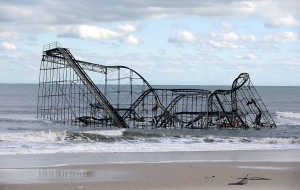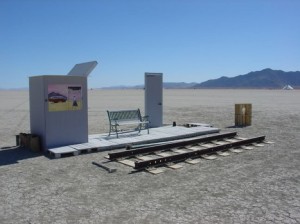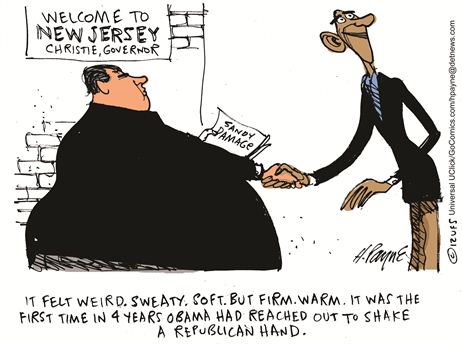It’s Tuesday, November 6th, 2012, Decision Day in America….but before we begin, a brief Biblical truth from II Samuel 12: 15-23, the meaning of which will likely not be lost on any of you:
“….the Lord struck the child that Uriah’s wife [Bathsheba, with whom David had committed adultery, then had Uriah killed] had borne to David, and he became ill. 16 David pleaded with God for the child. He fasted and spent the nights lying in sackcloth on the ground. 17 The elders of his household stood beside him to get him up from the ground, but he refused, and he would not eat any food with them.

18 On the seventh day the child died. David’s attendants were afraid to tell him that the child was dead, for they thought, “While the child was still living, he wouldn’t listen to us when we spoke to him. How can we now tell him the child is dead? He may do something desperate.”
19 David noticed that his attendants were whispering among themselves, and he realized the child was dead. “Is the child dead?” he asked. “Yes,” they replied, “he is dead.” 20 Then David got up from the ground. After he had washed, put on lotions and changed his clothes, he went into the house of the Lord and worshiped. Then he went to his own house, and at his request they served him food, and he ate.
21 His attendants asked him, “Why are you acting this way? While the child was alive, you fasted and wept, but now that the child is dead, you get up and eat!” 22 He answered, “While the child was still alive, I fasted and wept. I thought, ‘Who knows? The Lord may be gracious to me and let the child live.’ 23 But now that he is dead, why should I go on fasting? Can I bring him back again? I will go to him, but he will not return to me.”
Like David, come Wednesday morning, regardless of who will be our next President, our purpose in life will not have changed; nor will anything have transpired outside of God’s will or control.
And like Job, another Old Testament hero of ours, reacting to the loss of his children, our response will be, “The Lord gave, and the Lord has taken away; blessed be the name of the Lord.”
That having been said, have no doubt as to outcome for which we’ve been praying.
Now, here’s The Gouge!
First up, one political cartoon which truly summarizes what this election is all about:

Were the The Obamao’s policy successes and failures honestly depicted in a P&L statement (for any Liberals out there, that’s “P”rofit and “L”oss, the basis of any private enterprise), it would look something like this:
Assets:
– Usama bin Laden finally bagged on his watch.
Liabilities (in no particular order):
– Declared war on domestic fossil fuels while funding foreign oil and gas development
– Terminated the Keystone XL pipleline
– Solyndra and other green energy scams which enriched campaign contributors at taxpayer expense
– Fast & Furious
– Oversaw first down-grade in U.S. credit-rating in almost 100 years.
– Over $16 trillion in national debt
– 4 straight years of $1T+ deficits
– A Dimocratic-controlled Senate which hasn’t passed a budget in well over 3 years
– An $800 billion “stimulus” that benefited no one….outside of unions, public and private.
– Ignored established bankruptcy laws to pay off UAW….er,….save GM
– Obamascare
– Benghazi
– Cash for Clunkers
– The Chevy Volt
– Reaction to Gulf oil spill
– “You didn’t build that”
– “The private sector is doing fine”
– Gay marriage
– Repeal of DA/DT
– In reaction to an ever-more dangerous world, the smallest military since before WWII
– Class and race warfare, i.e., THE most divisive President in history
– Declared war on the Catholic Church and religious freedom
– Failed to secure America’s borders
– Violated his oath to protect and defend the Constitution by refusing to enforce existing laws and arbitrarily overriding others
– Food stamp President
– TARP
– Unemployment 7 points higher than the “official” figure
– Increased poverty
– Decreased education standards and performance
Would you buy stock in his company?!?
We could drone on, but since a picture’s worth a thousand words, here’s the juice regarding what may well decide our future:

Fortunately, we’re a might more optimistic than the Magic Scale, and tend to join Doug Feith, assistant editorial features editor at the WSJ, in worrying about what happens….
If Obama Loses . . .
Expect the left’s prophets of pathology to make a grim diagnosis.

If President Obama loses re-election, it won’t be because of the weak economy, the unpopularity of ObamaCare, the fallout from Benghazi or any other policy-related matter. At least that isn’t how many Obama supporters on the left are likely to explain it. Instead, we’ll hear that he went down to defeat at the hands of America the Pathological—a country where bigotry, corruption and political dysfunction reign.
Americans got a taste of that reaction four years ago, when Mr. Obama’s election wasn’t certain. “Racism is the only reason Obama might lose” to John McCain, Slate editor Jacob Weisberg wrote at the time. The argument was rendered moot when the first-term Illinois senator trounced Mr. McCain (53%-46%), winning a larger share of white voters than any Democrat in 40 years and entering the White House amid echoes of Camelot and approval ratings above 70%. Now the racism argument is being readied in the event of a Romney victory.

“If Virginia and Florida go back to the Republicans, it’s the Confederacy—entirely,” Newsweek’s Andrew Sullivan recently told ABC. He added that America is fighting a “Cold Civil War” as “the white people who’ve changed their minds happen to be in Virginia and Florida.” He failed to note that New Hampshire, Wisconsin, Iowa, Colorado and Nevada are other states where Mr. Obama’s drop in popularity might cost him electoral votes.
But being a prophet of pathology requires creative analytical skills. How else could MSNBC’s Lawrence O’Donnell know, as he said in August, that when Republicans criticize the president’s golf outings they’re actually using code to tie him to the sexual improprieties of Tiger Woods?

Attributing an Obama defeat to racism, though, is a weak charge because he is, after all, the incumbent—and so his defenders will need to bolster the America the Pathological diagnosis. That’s where a larger conspiracy would come in: The Supreme Court’s 2010 Citizens United decision handed the levers of power to plutocrats like the Koch brothers and Sheldon Adelson.
“Is a ‘Citizens United’ Democracy a Democracy at All?” asked Katrina vanden Heuvel of the Nation recently. Team Obama already has suggested that the election was being bought. “You’ve got a few very wealthy people lining up trying to purchase the White House for Mr. Romney,” said senior White House adviser David Plouffe in October. Added campaign strategist David Axelrod: “They are trying to buy this election.”
Actually, the spending by GOP donors has been about making a case to voters—and the same is true of spending by the Obama camp and every other campaign there ever was. Public rallies, television ads, direct mail, online videos and the like cost money. Such political speech is the essence of democracy, not its undoing.

Of course some campaign rhetoric is misleading or downright dishonest. That’s why it is good that politicians, journalists and regular citizens are free to push back. Ultimately the public decides—that’s the whole point. Unless the public can’t be trusted to bear that responsibility, a critique that seems to be at the heart of the scaremongering about the plutocratic takeover of American politics.
If a Romney victory is greeted on the left by howls of corruption, it will be worth remembering two pieces of history. First, private citizens like Messrs. Koch and Adelson have always been able to donate to political causes, as affirmed by the Supreme Court in Buckley v. Valeo (1976); Citizens United applied not to them but to corporations and unions. Second, no presidential candidate ever opted out of the public-funding system limiting campaign spending until Barack Obama did so in 2008—yet advocates of campaign-finance reform were notably quiet on that subject.
Apparently all money in politics is dirty, but some people’s money is dirtier than others‘.

Which brings us to the indictment that could ring loudest of all if Mr. Romney wins: America is ungovernable, democracy not up to the challenge. The United States is “a nation of dodos . . . too dumb to thrive,” Time magazine’s Joe Klein wrote in 2010, after opinion surveys showed the public insufficiently impressed by Mr. Obama’s economic stewardship. Days later, in a column called “Down With the People,” Slate’s Mr. Weisberg wrote that “what may be the biggest culprit in our current predicament [is] the childishness, ignorance, and growing incoherence of the public at large.”
This is familiar territory for progressives. As Herbert Croly, co-founder of The New Republic, wrote a century ago: “The average American individual is morally and intellectually inadequate to a serious and consistent conception of his responsibilities as a democrat.” So it has ever been thus: heads, our guy wins; tails, America loses.
But tails….

….Obama goes home….in which case we’ll be more than happy to deal with whatever follows!
Next up, former Libertarian Randy Barnett provides the benefit of his personal experience as he defines….
The Mistake That Is the Libertarian Party
Voting the LP line could swing the election to the Democrats. That’s not an outcome libertarians should hope for.

Libertarian candidate Gary Johnson: any questions?!?
As a young libertarian, I was very enthusiastic about the formation of the Libertarian Party. I proudly cast my vote for Roger MacBride for president. I attended the 1975 national convention in New York that nominated him. But, while I am as libertarian today as I was then, I have come to believe that the Libertarian Party was a mistake.
The reason is simple. Unlike a parliamentary system in which governments are formed by coalitions of large and small parties, our electoral system is a first-past-the-post, winner-take-all one in which a winning presidential candidate just needs to get more than 50% of the vote. This means each contending “major” party is itself a coalition that needs to assemble enough diverse voting groups within it to get to 51%. Hence the need to appeal to the so-called moderates and independents rather than the more “extreme” elements within.
To the extent that a third party is successful, it will drain votes from the coalition party to which it is closest and help elect the coalition party that is further removed from its interests. The Libertarian Party’s effort will, if effective, attract more libertarian voters away from the candidate who is marginally less hostile to liberty, and help hand the election to the candidate who is more hostile to liberty…..
http://online.wsj.com/article/SB10001424052970203922804578080684214526670.html?mod=WSJ_Opinion_LEFTTopOpinion
Any questions? If Perot in 1992 and Nader in 2000 didn’t convince you of the adverse impact of 3rd parties, you not only will not see; as Dan Feeney and Jim Crilley know too well, you will not learn!
As for predictions regarding the Big Question on everyone’s lips and minds, we’re with Michael Barone….
Going out on a limb: Romney beats Obama, handily

Fundamentals usually prevail in American elections. That’s bad news for Barack Obama. True, Americans want to think well of their presidents and many think it would be bad if Americans were perceived as rejecting the first black president. But it’s also true that most voters oppose Obama’s major policies and consider unsatisfactory the very sluggish economic recovery — Friday’s jobs report showed an unemployment uptick.
Also, both national and target state polls show that independents, voters who don’t identify themselves as Democrats or Republicans, break for Romney. That might not matter if Democrats outnumbered Republicans by 39 to 32 percent, as they did in the 2008 exit poll. But just about every indicator suggests that Republicans are more enthusiastic about voting — and about their candidate — than they were in 2008, and Democrats are less so.
That’s been apparent in early or absentee voting, in which Democrats trail their 2008 numbers in target states Virginia, Ohio, Iowa and Nevada. The Obama campaign strategy, from the beginning, has recognized these handicaps, running barrages of early anti-Romney ads in states that Obama carried narrowly. But other states, not so heavily barraged, have come into contention.
Which candidate will get the electoral votes of the target states? I’ll go out on a limb and predict them, in ascending order of 2008 Obama percentages — fully aware that I’m likely to get some wrong.
Indiana (11 electoral votes). Uncontested. Romney.
North Carolina (15 electoral votes). Obama has abandoned this target. Romney.
Florida (29). The biggest target state has trended Romney since the Denver debate. I don’t see any segment of the electorate favoring Obama more than in 2008, and I see some (South Florida Jews) favoring him less. Romney.
Ohio (18). The anti-Romney auto bailout ads have Obama running well enough among blue-collar voters for him to lead most polls. But many polls anticipate a more Democratic electorate than in 2008. Early voting tells another story, and so does the registration decline in Cleveland’s Cuyahoga County. In 2004, intensity among rural, small -town and evangelical voters, undetected by political reporters who don’t mix in such circles, produced a narrow Bush victory. I see that happening again. Romney.
Virginia (13). Post-debate polling mildly favors Romney, and early voting is way down in heavily Democratic Arlington, Alexandria, Richmond and Norfolk. Northern Virginia Asians may trend Romney. Romney.
Colorado (9). Unlike 2008, registered Republicans outnumber registered Democrats, and more Republicans than Democrats have voted early. The Republican trend in 2010 was squandered by weak candidates for governor and senator. Not this time. Romney.
Iowa (6). The unexpected Romney endorsements by the Des Moines Register and three other newspapers gave voice to buyer’s remorse in a state Obama carried by 10 points. Democrats’ traditional margin in early voting has declined. Romney.
Minnesota (10). A surprise last-minute media buy for the Romney campaign. But probably a bridge too far. Obama.
New Hampshire (4). Polls are very tight here. I think superior Republican intensity will prevail. Romney.
Pennsylvania (20). Everyone would have picked Obama two weeks ago. I think higher turnout in pro-coal Western Pennsylvania and higher Republican percentages in the Philadelphia suburbs could produce a surprise. The Romney team evidently thinks so too. Their investment in TV time is too expensive to be a mere feint, and, as this is written, Romney is planning a Sunday event in Bucks County outside Philly. Wobbling on my limb, Romney.
Nevada (6). Democratic early-voting turnout is down from 2008 in Las Vegas’ Clark County, 70 percent of the state. But the casino unions’ turnout machine on Election Day re-elected an unpopular Harry Reid in 2010, and I think they’ll get enough Latinos and Filipinos out this time. Obama.
Wisconsin (10). Recent polling is discouraging for Republicans. But Gov. Scott Walker handily survived the recall effort in June with a great organizational push. Democrats depend heavily on margins in inner-city Milwaukee (population down) and the Madison university community. But early voting is down in university towns in other states. The Obama campaign is prepared to turn out a big student vote, but you don’t see many Obama signs on campuses. Romney.
Oregon (7), New Mexico (5), New Jersey (14). Uncontested. Obama.
Michigan (16). Romney chose Pennsylvania, where there’s no auto bailout issue. Obama.
Bottom line: Romney 315, Obama 223. That sounds high for Romney. But he could drop Pennsylvania and Wisconsin and still win the election. Fundamentals.
We could be wrong; 299-229 is a possibility….but we don’t think so. As for the House, the GOP picks up at least 10 seats; and in the Senate, we see a 50-50 split, with Vice President Paul Ryan casting the deciding vote.
Next up, two views regarding the real significance of Hurricane Sandy. First, Bill O’Reilly’s observations, courtesy of Balls Cotton:
Sandy’s Lesson

It’s not like people couldn’t see her coming!
Here’s the big lesson from mega storm Sandy. Mother Nature sneers at high tech, mocks modern convenience and couldn’t care less about what kind of person you are – she will smack you if she wants. Many of us have forgotten about nature as we have become addicted to machines. We must have gizmos. Sandy laughed and took them away. Power, gone. Internet, dark. Cell phones, not happening. Even your landline phone – not available because “all circuits are busy.” Suddenly, it was 1850 with one exception: battery operated flashlights and radios.
So what is the lesson here?
Well, actually there are a few. First, that no government agency can help you when disaster strikes. Any assistance will be after the fact and painstakingly slow.

Second, that in order to ride out any storm effectively, you should be self-reliant and resilient. That means you have to anticipate problems and have some solutions at the ready.
For example, where I live on Long Island, the power infrastructure is a disaster and has been for years. The power company, LIPA, simply cannot keep the juice flowing under any duress. I have accepted that, so I bought a generator. However, during Sandy, the generator did not work. You can imagine how many four-letter words were uttered. But, I had a Plan B. I know some guys who can repair generators, and they fixed mine very quickly. I have a long-term relationship with these guys and will reward them. So, I rode out the storm pretty well, and that’s good because there are children in my home.
Never one time did I think the local, state or federal government was going to help me in any way. When President Obama speaks about government being there for you, I roll my eyes. In the history of mankind, no government has ever been there for the individual. Ever.

Sadly, we are becoming a nation dependent on other people, and very reliant on machines. Sandy’s destruction brought us back to the 19th century, as the collapse of the machines was something to see. Many people were lost without their appliances because they are not self-reliant. They also do not think ahead. They do not figure out Plan B because they don’t even have a Plan A.
Life is hard, and then you die. But, while you’re alive, you’ll be far better off if you forget about the big government nonsense, deemphasize the machines, and begin incorporating the discipline of self-reliance into your life.
Sorry for the lecture, but my father always said that out of bad things can come some good. Americans need to wise up, and with the election just a few days away, we have an opportunity to do so. We the people need leadership that will solve problems, be fiscally responsible, and promote individual responsibility. The charlatans that promise big government protection will always be around, but are no match for Sandy and her furious friends.
That is the lesson of this terrible storm.
Bottom line? Government promises will never prove an effective substitute for personal preparedness.
Then there’s Bill McGurn’s thoughts, courtesy of the WSJ:
Sandy and the Failures of Blue-Statism
Of all the vulnerabilities exposed by this storm, the biggest hit may have been to Blue State Liberalism.

Judging from their numerous appearances on our TV screens, Michael Bloomberg and Barack Obama have come through Hurricane Sandy just fine. The same cannot be said for their brand of governing. Of all the vulnerabilities exposed by this storm, the biggest hit may have been to Blue State Liberalism.
The damage goes well past the obvious embarrassments. Those include Mayor Bloomberg’s initial insistence that a yuppie marathon in Manhattan proceed—requiring a massive police and sanitation presence, as well as power sources—even as citizens on Staten Island were pleading for disaster relief. The embarrassments surely ought also to include Mr. Obama’s 2008 campaign vow that his election would slow the rise of the oceans.

I’m working on it.
The silliness of those episodes speaks to a serious point about the great vulnerability of 21st-century American liberalism: an inability to set the priorities necessary for good government. As a result, government grows both bigger and less capable, especially for people who do not have the resources to fund other options. As Walter Russell Mead argued recently on his blog at The American Interest, our biggest cities represent a “colossal failure of blue social policy to create sustainable lower middle class prosperity.”
Mr. Mead was writing in reference to the hell that our inner cities have become for many African-Americans. But the failure is larger than that, because so many of the government agencies that citizens depend on have morphed into jobs programs, where pensions take priority over performance. Compare, for example, the response of Verizon—which within 24 hours of Sandy’s landfall had 95% of its cell service up and running in affected areas—with the glaring lack of hard information from the government for people shivering in cold homes without power.
In their own ways, Mayor Bloomberg and President Obama embody the obsessions of modern liberalism. Each holds an advanced Ivy League degree. Each believes he would make better choices for others than they could make for themselves. Each has consequently eschewed the gradual and the modest—the unglamorous improvements that might have better prepared, say, Staten Island, for a dangerous storm. These leaders prefer instead the shiny and large, whether it is Mr. Bloomberg’s huge and costly 2nd Avenue subway project or Mr. Obama’s $860 billion federal stimulus.

By liberalism’s own measures, the results have hardly been impressive. For all the talk about infrastructure, it never seems to get the repairs or upgrades it needs. For all the talk about public education, it is precisely the people whose interests liberals supposedly protect—racial minorities and the poor—who suffer most from a failing public-school system. And for all the talk about how the GOP wants to deny Granny her federal entitlements, it is the conservative Republican in the national race, Rep. Paul Ryan, who actually has put forward a highly workable plan that would keep Social Security and Medicare alive for coming generations.
Meanwhile, what do we get from blue-state liberalism? In New York we get a mayor who makes war on Big Gulp sodas while proving himself inept at basic government functions such as clearing snow. At the national level, we get a president who vows to help the victims of Hurricane Sandy even though some might not be without power if regulators in Washington and New York hadn’t been making the environment so hostile to new investment.
Hence too the modern unvirtuous circle, where intervention at the federal level encourages waste and grandiosity at the local level. These subsidies distort priorities, which helps explain why California votes to spend money it doesn’t have for a high-speed rail it can’t afford.

Chapman University fellow in urban futures Joel Kotkin spends a great deal of time looking at which communities deliver and which do not, and he says it need not be a partisan issue. He cites Sioux Falls, S.D., which has a Democratic mayor in a sea of Republicans—and a fine new water-development system. Or Galveston, Texas, which maintains a huge seawall to avoid the kind of hurricane damage that killed 6,000 people back in 1900. Much of the nation’s best new infrastructure, he says—roads, bridges, airports, ports—has been built in “red” cities on the Gulf Coast and Great Plains with bipartisan support.
By contrast, he is astounded by the kind of liberalism he sees in his adopted state of California and his native New York, where a mayor who jets down to his mansion in the Bahamas on weekends tells working- and middle-class New Yorkers that they really shouldn’t be driving to work or living in single-family homes. “In many ways,” Mr. Kotkin says, “liberalism is increasingly big brother meets blue nose.”

Actually, it’s Bermuda, not the Bahamas!
The irony is that modern American liberalism has become a movement grounded less in practical politics than a sort of religious fervor—and often requiring the same strong faith in the face of disappointment and failure. The difference, of course, is that while religions often promise to deliver in the next world, government is supposed to do it in this one.
Progressive political promises to the contrary notwithstanding, government never has….and never will.
On the Lighter Side….









Then there’s this gem from Balls Cotton:

So color us a racist; and be sure to get as many racists like us out to the polls to help The Obamaos pack for their last flight on Air Force One….a one-way trip to The Windy City!
Magoo






























You must be logged in to post a comment.